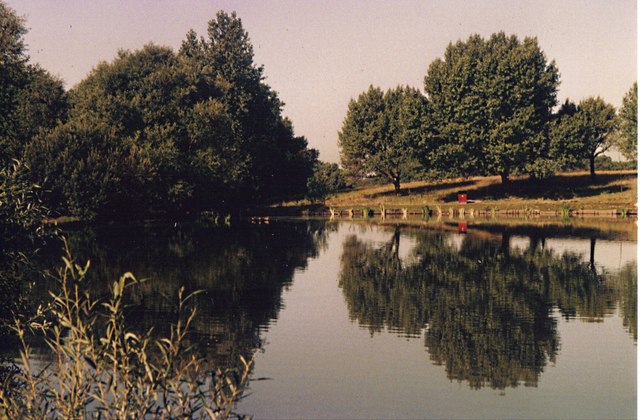Boggart Hole Clough is a large woodland and urban country park in Blackley, a suburb of Manchester, England. It occupies an area of 74.4 hectares (183.8 acres), and is what remains of part of an ancient woodland;[1] clough is a local dialect word for a steep-sided, wooded valley. The park’s population of birch, hazel, alder and oak has survived since 5000 BCE.[2]
Facilities in the park include a children’s play area, multi-use games area, athletics track, tennis courts, a bowling green, boating lake, fishing area and a cafe.[3]
Boggart Hole Clough was designated a Local Nature Reserve in 2008.[1]
Local activism
Local suffragettes held open-air meetings in the clough, something that Manchester City Council attempted to discourage when they acquired the land in 1896 by imposing fines on the speakers. The tactic backfired however, when the publicity resulting from the suffragettes’ refusal to pay increased audiences from hundreds to tens of thousands.[4] Emmeline Pankhurst spoke at the clough on 21 May and 28 May 1896 and was arrested, charged with breaching public order. When she spoke at the clough again a week later, alongside the Labour politician Kier Hardie, the crowd was estimated to be between 25,000 and 40,000. The government became so concerned at the threat to public order that the Home Secretary refused to sanction the bye-law imposed by Manchester Council.[5]
Boggarts
In folklore, a boggart is a type of mischievous brownie.[6] The earliest recorded folk tale about a boggart living in Boggart Hole Clough appears in John Roby’s Traditions of Lancashire (1829). George Cheetham, a local farmer, and his family were driven to leave their home owing to the torment inflicted by a boggart.[a]Roby describes the boggart as a sort of poltergeist.[2] But as they were taking their possessions away in a cart they passed a neighbour, who asked if they were moving. From nowhere, the shrill voice of the boggart was heard to say “Ay, ay, neighbour, we’re flitting”. Realising that the boggart had stowed away on the cart, George turned around and headed back home, saying that if they had to be haunted, they might as well be haunted at home”.[2]
Charles Roeder, in his 1907 account of the folklore of North Manchester, refers to an altogether more congenial boggart that lived in a haunted farmhouse on the clough,[b]Roeder used the term bar-gaist.[2] “who would render many good services to the occupants”.[2]


